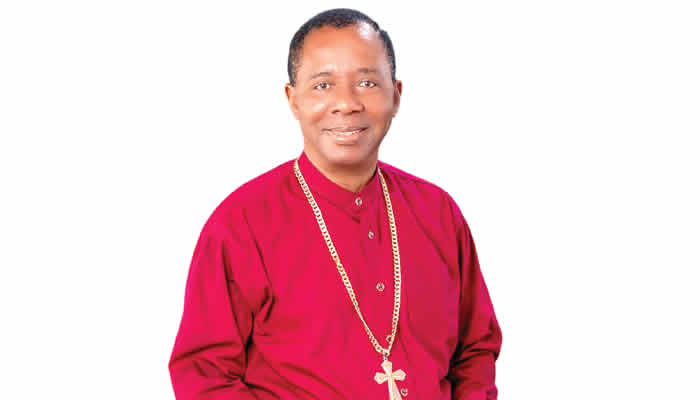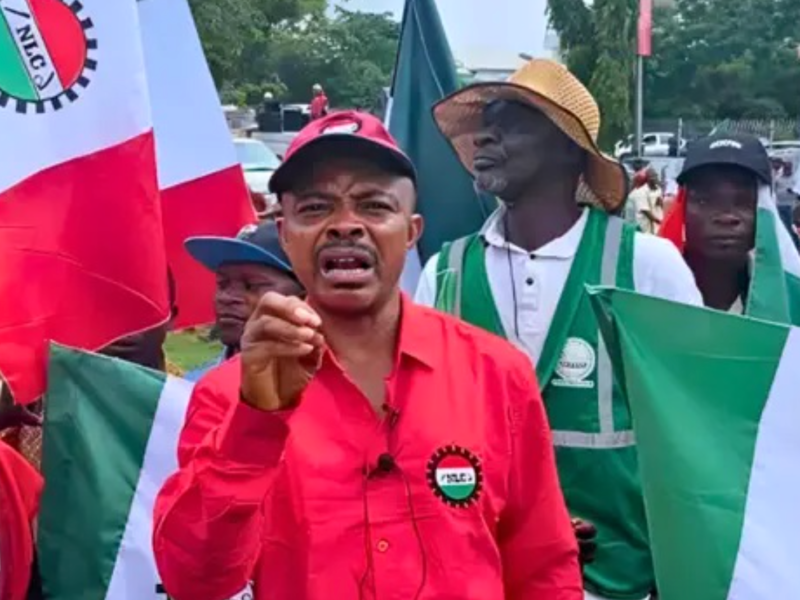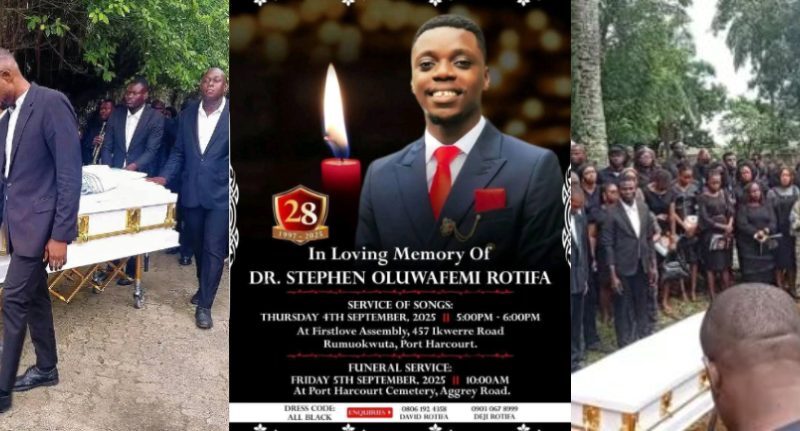Bishop Charles Ighele, General Overseer of Holy Spirit Mission (aka Happy Family), a Lagos-based Pentecostal church, turned 70 recently. He shares with FELIX OLOYEDE his thoughts on topical issues affecting the church in Nigeria
You just clocked 70, and you spent about four decades playing a big role in the ministry. What has life taught you the hard way?
You see, life has taught me in so many instances that the hard way will always lead to a better way. That’s what I’ve learnt from life, that each time there is something hard, difficult, or disappointing, one way or the other, something better will come out of it. So, the scripture that all things work together for good for those who love God is applicable in my life.
The key thing is to love God. Another key thing is to live in righteousness. Once that is done, it’s a law that no matter the disappointment, everything must work out for your good. So, I learnt that the hard way.
When we lost a lot of land that we paid for, we now have it in a better way. So, when hard things happen, I take it easy. I expect a blessing from it. I don’t get disappointed. I’m never in bitterness; I’m never in sorrow. There’s a law that I believe in, that things should work out for good for those who love God.
Have you ever wanted to walk away from ministry? What kept you going?
No, never. I’ve never. In the first place, I didn’t want to be a pastor. I wanted to be a businessman, financing the work. I’m paying the salaries of pastors. I’m not begging for money from anywhere. The Lord made me understand that I’m called. But there was pride in me. I had to put it aside. So, I had never thought of walking out of the ministry. Never!
People see the man on the pulpit, but not the man at home. What kind of father and husband are you?
Well, my wife, several times, has said, ‘Oh, by the time we die, we won’t see each other again.’ She knows we’ll go to heaven, but she loves her marriage. She wishes we could continue there. My children, my wife, and all those who know me can say that I’m a good husband and a good father. I’m not praising myself.
At home, I create fun for my family; in fact, I christened myself the minister of entertainment for my family. When my football club and others are playing, I have fun. If this team defeats my team, everybody will have a certain amount of money.
You see everybody rooting for my team, Arsenal. We have movie nights, among others. So, I’m a family man to the core, and I try to take my wife out once a week, no matter the busy schedule.
What other life would you have lived if you were not a pastor?
If I were not a pastor, I would have loved to be a lawyer or a journalist. Back in my campus days in the 1970s at the University of Ife, I was the Editor-in-Chief of King Cobra, one of the best-selling campus newspapers in Ife.
I started reading newspapers, the Daily Times in particular, from primary school, and that’s where my deep interest in the Nigerian press began. So, yes, I would have become a lawyer or a journalist. But God directed my path this way, and I’m truly enjoying it.
Along the way, have you lost friends because of the position you hold?
I lost many of them. Perhaps I only retained one or two friends. I lost most of the others, partly because becoming a Christian or growing more serious in my walk with Christ meant losing some friends. My commitment to Christ came with certain decisions.
First, I couldn’t just live anyhow. Second, I had to take my faith seriously. In the 1980s, as a bachelor, I made a vow on the altar: I said, ‘God, I will never commit fornication. If I do, let me die, and I will never commit adultery. I have no power of my own, please, give me the grace.’
I was seriously tempted, even as a pastor, but God gave me the grace to stand. As you grow in consecration, some people leave you because you no longer fit into their circle. I lost friends like that, and honestly, I’m glad. Some people don’t want to move forward; they want to sit behind. You can’t carry them along if you’re determined to make progress.
What are your honest thoughts about the perception that church leaders in Nigeria are living large at the expense of the sweat of members of their congregations?
You see, it’s a perception, and perceptions can be wrong. I can tell you that most Nigerian pastors are extremely poor. I know how many of them, even outside our church, we try to reach out to.
There was a time when one of these social media platforms said the richest person in Nigeria was supposed to be a pastor. Some pastors are wealthy, yeah, there are not many. Let me put it this way.
I think it was John Wesley or Charles Wesley of the Methodist Church who said that what the present generation tolerates, the next generation will embrace. My generation of senior ministers tolerated some things. The younger ones have taken it as a lifestyle and are making nonsense out of it.
We have to blame the generations that led us to this very situation. How did we get here? From 1966, the education culture, the way it was, to this level, what are the defining moments? There is one man of God who named his church the Remnant Church. Before someone can name a church ‘Remnant Church’, it means there is a serious problem.
I am not happy with my generation of ministers and the present generation, which has got worse. Today, it’s like anything goes. Magic is ministry. ‘Come and get your miracle’ is their message. ‘Come and get your miracle’ cannot make anybody grow into the image of Christ.
What role has your spouse played in your journey, and what sacrifice did she make that people don’t see?
Here’s a woman who schooled abroad, has a Postgraduate Diploma in Computer Science and worked with Nigeria’s fourth largest bank in those days. Here’s a woman who headed the bank’s training school in four or five states and was picked by her bank when the late Mrs Babangida was the First Lady and organised a conference for women in banking.
Here’s a woman who rose high in the bank, and after 14 years in the banking industry, she said God asked her to resign and join her husband in ministry. Yet, in the 15th year, she was entitled to a juicy package from her organisation when leaving. She forfeited it, and then in her 14th year at the bank, she left.
That’s a woman; indeed, a woman who, when I was both a branch pastor and in business, encouraged me tremendously. She stood with me, never to give bribes for anything. We lost a job because of that. We were to buy a house in GRA with the profit. We had gone ahead to price the building, but we were asked to give kickback before they would give us the work, but I refuse
When I told her, she said, ‘Darling, don’t worry, this is not how God wants to make us rich. It’s good that you refused to offer a bribe.’ I was very young then. This woman never pushed me away on days when things were not going well with me, days when three people would share one egg in my house, even though the price of an egg was relatively cheap.
She has never made me feel sorry for being a man. Such women are very rare. Mind you, she came from a richer family in a better social background. For the first time in her life, I made her climb on a motorbike when I was in my early 30s or 31 or so.
In those days, her parents were big, yet she came to my level to start life. Many men wanted to marry her, but she said it was God who asked her to marry. A woman like that is rare. She was 68 last month. She pleaded that her birthday shouldn’t be celebrated owing to the financial commitment to programmes here and there. Such women are rare, and I salute her.
Some people are complaining that we have more churches than industries, which should boost employment in the country. What’s your view about it?
It is the work of the government to create an enabling environment for industries to thrive. That is the work of every government. When you look at my library, I have books about Singapore, how it developed, and Dubai, how it developed. These are among my best books. There has to be an environment created by the governing authority for this to happen.
It used to be different in those days. We had companies like Kaduna Textile Mills that sponsored top-tier football clubs. Asaba Textile Mills did the same. In those days, teams like Leventis Football Club and a few others were sponsored by companies. That was how vibrant the industrial and sports scenes were.
Today, look at the environment. The Ankara fabric you’re wearing, even the one I used to make my dress, was imported from China. Yet, the Chinese don’t wear Ankara. So effectively, we’re creating jobs and sustaining industries in China, not Nigeria.
The issue isn’t that churches are taking over factories; it’s that governments over the years failed to protect and grow these industries. The decline began a long time ago, particularly during the military era, and since then, it’s been a free fall. What is the role of government? To me, building roads and bridges or commissioning water projects are routine responsibilities of the government. They’re not achievements; they’re basic duties.
The government is meant to enhance the quality of life of its people. God is the originator of government; He instituted the government of Heaven before the creation of the earth. So, governance has a divine origin and purpose.
When God created the earth, sun, moon, stars—He had one central purpose: the creation of man. Therefore, man is the reason for creation. And by extension, the government exists to serve man.
So, if you build airports everywhere but the average Nigerian’s quality of life remains low, you’ve missed the point of governance. That’s why many Nigerians have nowhere to turn but to take refuge in God. Unfortunately, much of this is not even grounded in genuine faith; it’s desperation. People flock to churches seeking solace.
How can the church address this issue?
While the government must do its part, the church shouldn’t fold its arms either. Some churches are stepping up, creating employment not just by hiring pastors but by establishing schools and industries. In our case, we’re focusing on education and, most importantly, agriculture. That’s why we’re setting up the University of Agriculture and Rural Development.
According to Dr Akinwumi Adesina, President of the African Development Bank, 67 per cent of the world’s arable land is in Africa, and most of that is in Nigeria. I’ve always been aware of this fact, but I didn’t know the exact figure until I heard it from him. If most of the world’s fertile land is in Nigeria, then many Nigerians are naturally supposed to be farmers.
That means there’s an innate agricultural potential in us. If we can harness and develop that potential, Nigeria can feed the world. That is why people like us identify and train those who are interested and have the capacity. We’re enrolling them in our University of Agriculture and Rural Development. Some are members of our church; others are from different places.
After interviews, we hire and train them. Today, they’re earning better than they were before. While the government should lead in driving development, the private sector must also be encouraged to invest in industries. Though it’s not primarily the role of the church, the church should play a part.
In addition to establishing the University of Agricultural and Rural Development, you also have a vision to establish an interest-free microfinance bank. How do you intend to go about it?
Right now, we have what is known as the Bank of Hope. This is not a registered bank yet. We see people who have potential and who can do something. We started with some N20m, though paying back was a challenge. From there, we helped them to stand financially on their feet, and it is interest-free.
As God blesses our ministry more and more, we hope to make it become like a microfinance bank that will operate at that level, interest-free. We’re going to get that one to help people stand on their feet. The African Children Village, which we are putting up for children who are abandoned, is ongoing. There are other projects, which we’re going to inaugurate later this year.
Before the end of this year, we’re going to lay the foundation stone for the university, the children’s village, and the New Life for Teenage Mothers Centre; we have already acquired the building in Lagos. It is for them to have a second chance at life.


